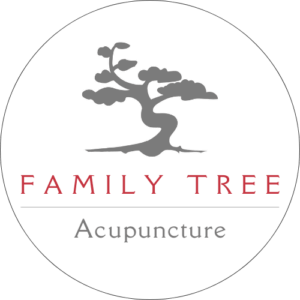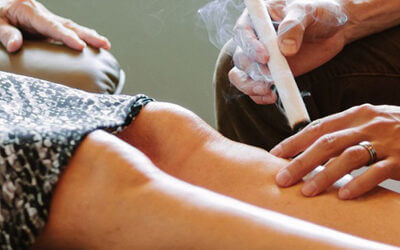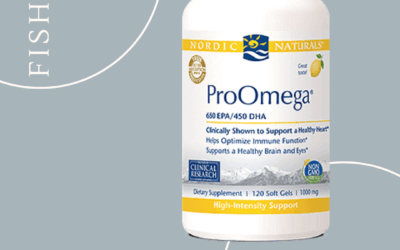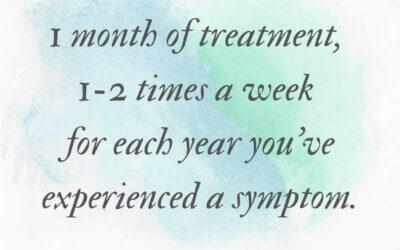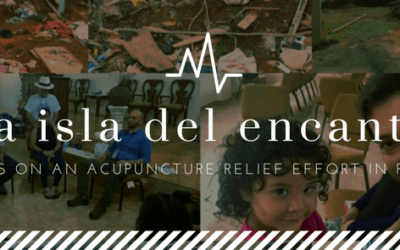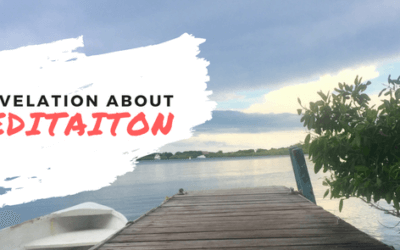Let food be thy medicine and medicine be thy food. — Hippocrates, father of medicine, 431 B.C.
Jorge and I are at the tail end of our annual whole foods cleanse, and every year I repeat the same pattern. The week before our cleanse starts, I grieve all the birthday cake we won’t get to indulge in, the happy hour cocktails I can’t unwind with, and the convenience food that I can’t grab on the go.
The first week of the cleanse, I trudge through a murky swamp of detox symptoms including a foggy, loopy, lightheaded sensation, some sluggishness, and an overall feeling of “am I getting sick?”
By week two, I’m walking on air. My mind is clear as crystal and I can express myself without searching for or getting stuck on words. My energy is so high it’s a tad bit scary. I feel lighter in my body. I’m no longer craving foods that aren’t good for me and I don’t lament having to pass on the hor d’oeuvres or desserts at a party.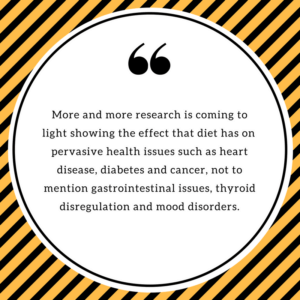
Throughout week three, I question whether we should even STOP cleansing. Sure, it takes more time, effort and money to eat this way, but the health trade off is well worth it.
Reality check: this won’t last. I’ll continue eating this way until someone offers me a martini on a Friday night. I’ll continue avoiding refined sugar until my mom shows up at my house with her homemade chocolate chip cookies. I’ll continue passing on the caffeine until my next Saturday morning post-yoga meetup with my girlfriends at Sweet Marlay’s. Make no mistake: I will fully appreciate and savor these delectable treats without an ounce of guilt, and only in moderation.
So why even bother? Honestly, I consider it a gift that Jorge and I give to ourselves for three weeks every year….the gift of clean, whole foods that help remind us how much we’re affected by refined sugar, gluten, dairy, processed foods, caffeine and alcohol. We use this to inform the food choices that we make for the rest of the year. As young(ish) healthy adults with big plans for the future, we can’t afford to take risks with our long-term health.
Make no mistake though, we’re not food purists. Once the holidays start creeping up and until the time we start our cleanse again in the spring, we find ourselves taking more liberties with our eating and learning to live with resulting symptoms such as mental sluggishness, energy peaks and valleys, mood fluctuations and other unsavory experiences. Albeit, they’re mild, but they’re present nonetheless.
We also do this cleanse in support of the patients with serious health issues of whom we’ve asked to make major lifestyle changes to affect positive change. Convincing patients to remove gluten from their diet, increase their exercise, or incorporate meditation into their daily life is a HUGE ask. We feel more emboldened to make that request having made such changes in our own lives and experienced the benefits ourselves. We know what we’re asking you to do and we don’t take it lightly.
Here’s what one of my patient’s has to say after she removed wheat from her diet:
Right now I have more energy than I know what to do with, which is something I haven’t had in many years! So happy for that! Speaking of energy, my asthma and allergies have been so much better that it’s been making me less afraid to exercise more often. I am thinking this will be a whole new life for me! I’m so much more excited for the future! Truthfully, it is easier to avoid wheat than it is to try to plan for an unpredictable asthma/allergy attack.
If you think a 21-day whole foods cleanse is pretty extreme, think again. More and more research is coming to light showing the effect that diet has on such pervasive health issues such as heart disease, diabetes and cancer, not to mention gastrointestinal (GI) issues, thyroid disregulation and mood disorders. Open heart surgery is extreme. Pricking your finger to check fasting blood sugar levels is extreme. Chronic constipation or diarrhea is extreme. Long-term pharmaceutical use is extreme. Eating food that comes from the earth and that wasn’t made in a factory? Not tha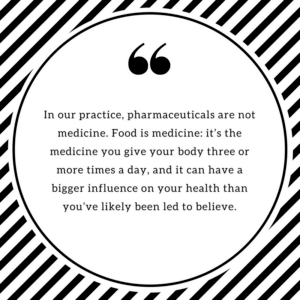 t extreme.
t extreme.
The first time I tried acupuncture was out of desperation. I was a teenager in college struggling with GI issues, the details of which I will spare you. Like many of you, I had run the gamut in Western medicine and was looking for a change that came without the side effects of pharmaceuticals. I was impressed with the time my acupuncturist spent asking me questions about my diet, lifestyle, and other aspects of my health, but I was skeptical of experiencing a change in my life using just a few needles and some potent smelling herbs.
Boy was I wrong.
After experiencing a noticeable decrease in my symptoms after only two visits, I was hooked. When my acupuncturist told me that the inflammatory nature of wheat and dairy may be affecting my symptoms and preventing more profound healing, I was hesitant to eliminate these ubiquitous foods from my diet.
I was also desperate to change the course of my health. So I did it.
Mind you, this was 20 years ago…..and waaaaaaay before gluten-free products and dairy-alternatives were available in supermarkets.
The results were profound. While I abstained from the inflammatory foods that were irritating my GI system and affecting my mood, I received regular acupuncture treatments to rebalance my system and take the edge off of stress. When I slowly started reintroducing unrefined wheat and dairy back into my diet a year later, I was able to tolerate them.
Needless to say, I was a convert: not only to the reparative action of acupuncture, but to the the effect that foods can have on our gut, brain, hormones and virtually every organ and system in our bodies.
In our practice, pharmaceuticals are not medicine. Food is medicine: it’s the medicine you give your body three or more times a day, and it can have a bigger influence on your health than you’ve likely been led to believe. I don’t only know this from my own personal experience, but in helping others make changes to their diet and eating habits, and in discovering the profound amount of research that supports the results that I’ve seen in our clinical setting.
A word on your gut from a Chinese medicine perspective: Healthy digestion requires the optimal function of the spleen and stomach. These guys are the primary organs responsible for much of your “digestive qi” or the energy driving your digestive metabolism. As Westerners, the concept of spleen might not mean much, but in Chinese medicine, this vital organ holds the reigns when it comes to effectively and efficiently transforming the food you eat into useable energy, or qi.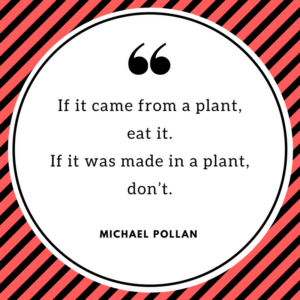
What’s more, our digestive organs have emotional characteristic to go along with their physiological functions. Digest this: the emotional aspect of our gastrointestinal system is thoughtfulness, pensiveness and worry. When you nourish your digestive qi, you are better able to process thoughts into healthy actions and discard thoughts that do not serve you. When your digestion is burdened or weak, the result can be excessive worrying, over thinking or feeling emotionally stuck. A vicious cycle can occur in which these negative thought patterns can further weaken your digestion….which in-turn can lead to even more ruminating thoughts and brooding.
When counseling patients on nutrition, we’re pulling from modern research, the ancient principles of Chinese medicine, our clinical experience, our personal experience and common sense.
When it comes to common sense principles on nutrition, I love what Michael Pollen has to say on the subject. We have multiple copies of his book, “Food Rules: An Eater’s Manual” in our office, which we lend out to patients regularly. Here are a few of my favorite “rules” from this gem of a guide:
-
-
- Don’t eat anything your great grandmother wouldn’t recognize as food. “When you pick up that box of portable yogurt tubes, or eat something with 15 ingredients you can’t pronounce, ask yourself, “What are those things doing there?” Pollan says.
- Don’t eat anything with more than five ingredients, or ingredients you can’t pronounce.
- Stay out of the middle of the supermarket; shop on the perimeter of the store. Real food tends to be on the outer edge of the store near the loading docks, where it can be replaced with fresh foods when it goes bad.
- Avoid foods you see advertised on television. More than two-thirds of food advertising is spent promoting processed foods, so if you avoid products with big ad budgets, you’ll automatically be avoiding edible food-like substances.
- It is not just what you eat but how you eat. Always leave the table a little hungry. Many cultures have rules that you stop eating before you are full. In Japan, they say eat until you are four-fifths full. Islamic culture has a similar rule, and in German culture they say, ‘Tie off the sack before it’s full.
- Don’t buy food where you buy your gasoline. In the U.S., 20% of food is eaten in the car. In a similar vein, “It’s not food if it arrived through the window of your car.”
- If it came from a plant, eat it. If it was made in a plant, don’t.
-
Turns out the old adage “you are what you eat” couldn’t be more true. If you know that aspects of your diet could be tweaked to improve your health, we’d be happy to help guide you in making changes based on your health concerns and your unique constitution. In the meantime, here are a few resources that we recommend that might inspire you to think differently when it comes to your grocery list, your restaurant choices and your eating habits.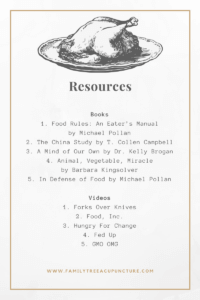
In health,
Maggie Mejia

